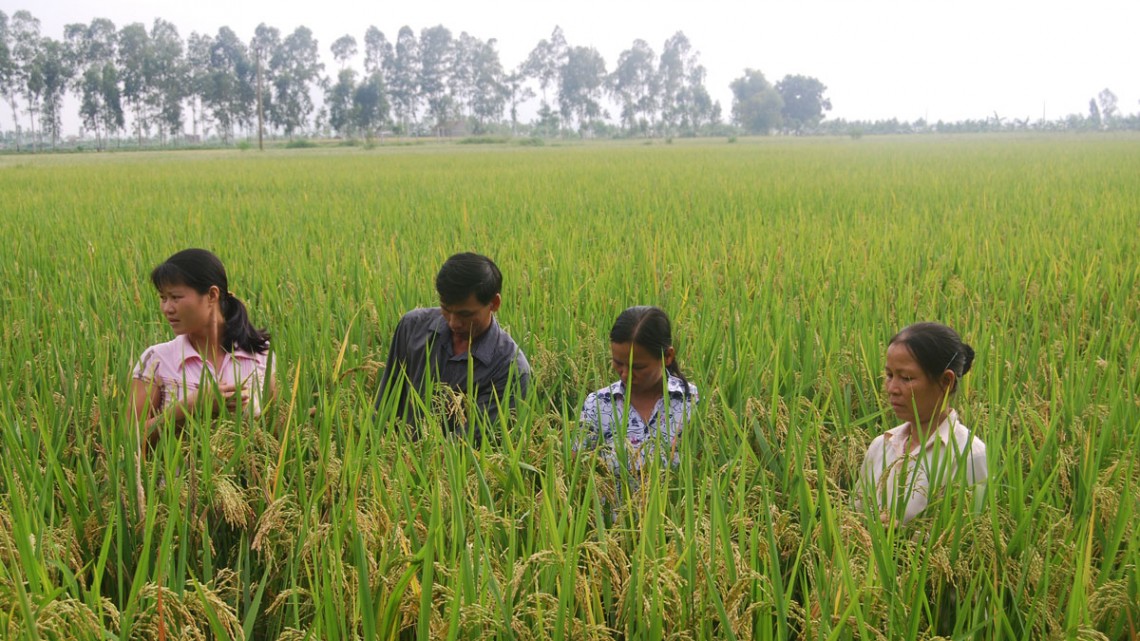
Farmers in a field in Vietnam.
News directly from Cornell's colleges and centers
System of Rice Intensification recognized for climate policy impact
By Lucy Fisher
The System of Rice Intensification (SRI) has been named as a 2020 climate policy "breakthrough" for government initiatives in Vietnam to increase agricultural production there while reducing methane emissions from rice paddies.
SRI was recognized by Apolitical, a peer-to-peer learning platform for sharing government policy ideas, as one of the most beneficial climate policies that can mitigate climate change or enable people to adapt to it successfully. The recognition is for projects worldwide that have demonstrated their potential for scalable, effective change.
SRI is a methodology developed in Madagascar that raises rice yields by modifying common practices: transplanting fewer, younger seedlings with wider spacing; providing intermittent irrigation (no continuous flooding); increasing organic matter in preference to chemical fertilizers; and using a simple mechanical weeder to control weeds and aerate soil.
These practices together produce plants with more tillers and more grains, supported by stronger root systems. Production costs are lowered with higher yield, so farmer incomes are increased by more than yield.
By stopping flooding and relying mostly on organic fertilization, methane emissions are greatly reduced without offsetting increases in nitrous oxide. Also, less carbon dioxide is generated due to reduced reliance on and transport of manufactured inputs. Oxford researchers in India found 30% reduction in net greenhouse gas emissions with SRI, compared with current practice, and more than 50% reduction in greenhouse gas emissions per kilogram of rice produced.
These effects have been documented in several countries, but Vietnam government is the first to make SRI part of its national plan for meeting national GHG reduction targets. According to Norman Uphoff, professor emeritus of government and international agriculture in the College of Arts & Sciences, "There are multiple benefits from making simple changes in current practice. These methods have been adapted also for rain-fed rice and several other crops. SRI is one of many forms of agroecological practice."
The SRI International Network and Resource Center (SRI-Rice), which is associated with the Department of Global Development in the College of Agriculture and Life Sciences, was set up in 2010 to advance and share knowledge about the System of Rice Intensification, to improve the technical implementation of the SRI methodology, and to support networking among interested organizations agencies, and individuals around the globe. More information is available on the SRI-Rice website.
This article also appeared in the CALS Newsroom.
Lucy Fisher is the associate director of communications for SRI International Network and Resource Center.
Media Contact
Get Cornell news delivered right to your inbox.
Subscribe
